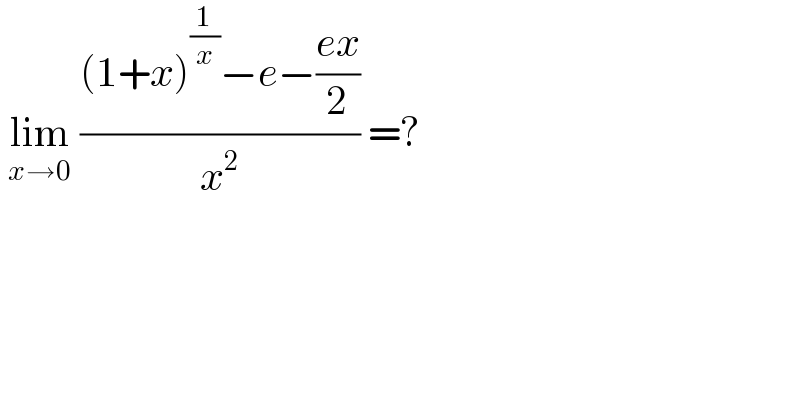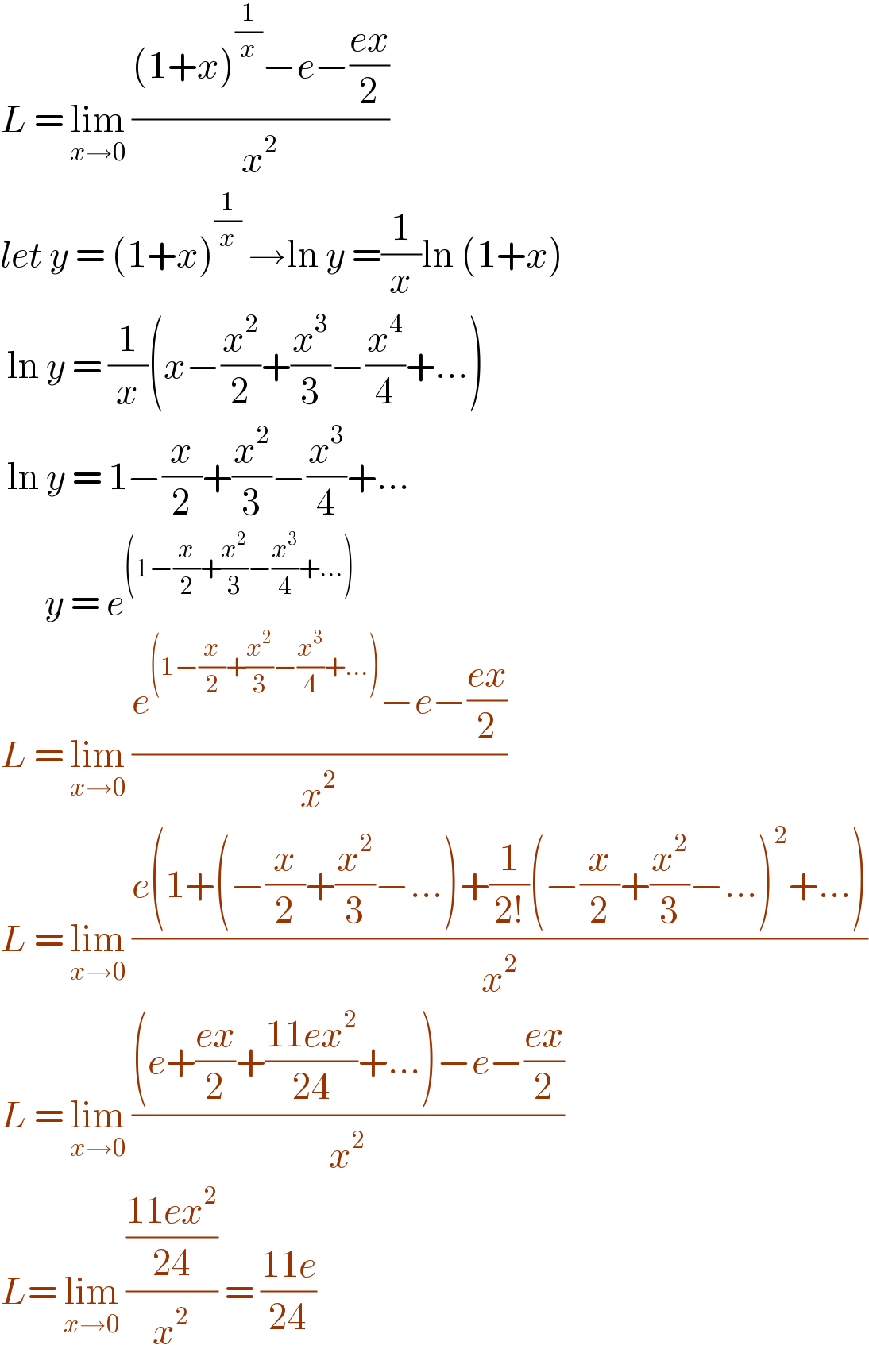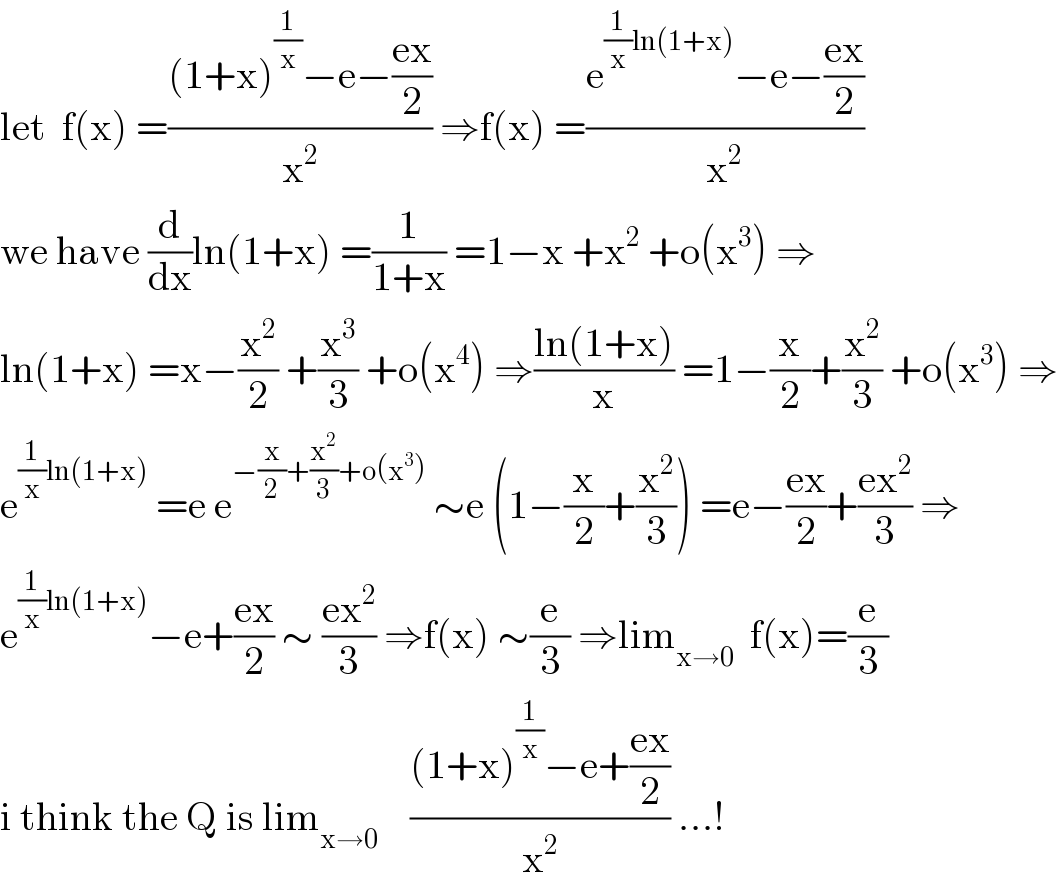
Question and Answers Forum
Question Number 113742 by bemath last updated on 15/Sep/20

Answered by bobhans last updated on 15/Sep/20

Answered by mathmax by abdo last updated on 16/Sep/20

| ||
Question and Answers Forum | ||
Question Number 113742 by bemath last updated on 15/Sep/20 | ||
 | ||
Answered by bobhans last updated on 15/Sep/20 | ||
 | ||
| ||
Answered by mathmax by abdo last updated on 16/Sep/20 | ||
 | ||
| ||